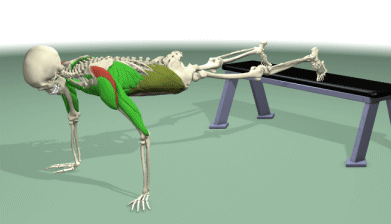




THE FITNESS
DIGEST.
Bacteria from the mouth can enter the bloodstream through the gums. These same bacteria have been found clumped in artery plaques. So one theory is that these bacteria stick to the fatty plaques in the bloodstream, directly contributing to blockages.
Other possibilities lie in the body's own defence mechanisms against bacteria. One of the body's natural responses to infection is inflammation (swelling). It's possible that as these oral bacteria travel through your body, they trigger a similar response, causing the blood cells to swell. This swelling could then narrow an artery and increase the risk of clots.
That inflammation could be the root of the problem adds to data researchers are gathering that suggest more and more diseases, including periodontal disease, heart disease, and arthritis, are partially caused by the body's own inflammatory response.
Could Periodontal Disease Cause Heart Attacks?
So could periodontal disease, gingivitis, or another dental disorder, pericoronitis (when gum tissue around the molars becomes swollen and infected) cause heart attacks and strokes? It's far too early to say.
There's no question that there appears to be a connection.But the exact relationship between cardiovascular disease and periodontal disease isn't clear.It's like the chicken and the egg.In studies, we know that people who had higher levels of the bacteria had more arteriosclerosis, or atherosclerosis. But we can't say whether one caused the other." The only way to know, is to follow up the people in studies to see how they fare in the long term.
But even if periodontal disease isn't actually causing heart disease, the connection could still be important. For instance, periodontal disease might be an early sign of cardiovascular problems. Heart disease can be hard to catch early, because many of the conditions that precede it have no symptoms. You won't ever feel your arteries hardening or your cholesterol rising. But you might notice bleeding or painful gums.
If further studies bear out the connection between periodontal disease and heart disease, the next step would be to try treatment. Might taking antibiotics not only help heal oral infections but, as a result, also lower your risk of heart disease? No one's sure, but it's possible.
It's still too early for official preventive steps, since researchers don't know exactly how heart disease and periodontal disease are connected.
Obviously, people worried about heart disease need to pay attention to the established risk factors," People shouldn’t think that if they just started to brush their teeth more, they could go back to smoking or ignore their diabetes.
Bleeding gums and heart desease
Physical fitness Disclaimer and Waiver of liability:
Exercises are not without their risks and the exercise programs in this website may result in injuries.Any person who undertakes these exercises does so at their own risk.To reduce the risk of injuries ,you should consult your doctor before beginning these or any other exercise programs.As with any exercise program ,if at any point during your workout you believe conditions to be unsafe or begin to feel faint or dizzy,have physical discomfort or pain, you should stop immediately and consult a physician.
Daily exercise for Working women.
Jumping Jacks. . Effective workouts.
Group exercise and its benefits.
Calf raises-free style . Push ups.
Tummy exercises. Hoola Hooping .
Fitness Motivational tips. Barbell Squauts.
The myths of spot reduction. Leg press.
Standing calf raises. Concentration curls.
Bench (Tricep) dips.. One arm dumbbell rows.
Pec deck Flye. Fr0nt dumbbell raises. Glute ham raise.
Seated leg curl . Close grip bench press .
.

Please keep comments positive and constructive.
Help the WEBSITE by reporting inappropriate comments to thefitnessdigest@gmail.com . Inappropriate comments may be reported and/or removed.